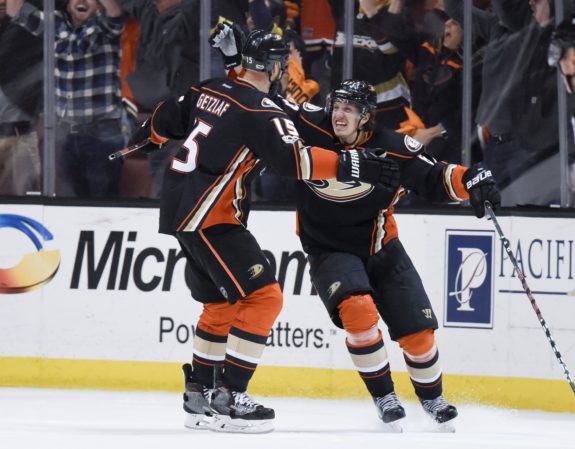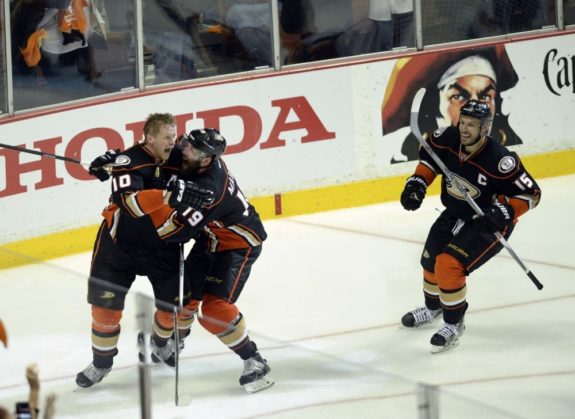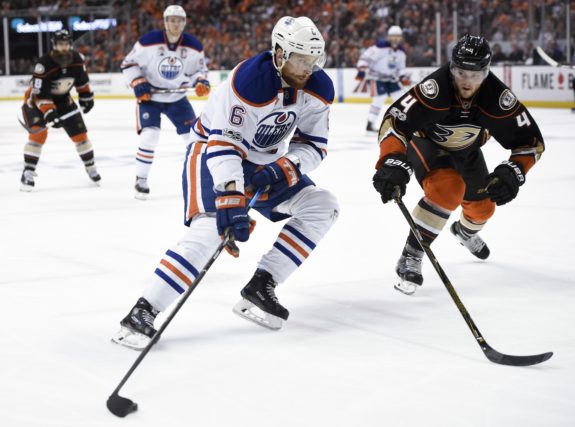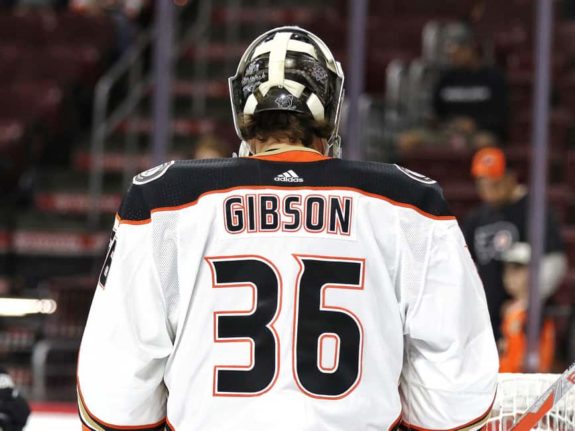With the start of the 2015 season, the NHL decided to shake things up with the introduction of 3-on-3 overtime. The league felt that too many games were going to shootouts, and, with the introduction of this new overtime formula, they could make the game more exciting and finish more games in those five minutes of extra hockey. It worked, and what we saw were teams who suddenly could push games to a tie and knew going in they had a great chance of winning 3-on-3 because of their speed and skill.

What the NHL obviously didn’t do was consult the Anaheim Ducks, because, since the start of the “new” overtime, they have been terrible. Frankly, they have been downright awful. And here we are, three seasons later, and they still can’t get the formula right. That is, until three of their last four games all went to overtime, and they somehow won them. Obviously, something has changed, but in order to figure out what that is, we have to understand the story behind their overtime struggles.
Behind the Ducks Overtime Struggles
This season, the Ducks have played 11 games that ended in the overtime period, not including games that went to the shootout. They have only managed to win four of them, and three of those came in the last three weeks. That means before their overtime victory against the Edmonton Oilers on Mar. 25, they only managed one win in eight games.
Last season, they played 13 games in overtime and won three of them. The year the league implemented the 3-on-3 formula in 2015, they played 11 games in overtime and won three of them. So put those numbers together and out of the 35 games they have played in overtime since the 2015-16 season, they have only won 11. That’s a measly 31%.

For reference, before they implemented the “improved” overtime, the Ducks played a total of 23 overtime games since the 2012-13 season and won 16 of them. That’s a 70% winning percentage which is strikingly different from the 31% they carry now. With so many losses in overtime, the Ducks are losing out on crucial points to get into the playoffs. The Ducks and Los Angeles Kings are separated by one point in the standings, but the Kings can attribute eight of their points to their overtime wins. The Ducks could be in a very different spot if they could say the same. Those points could make a world of difference in a tight playoff race.
So why are the Ducks so bad in overtime? There are a couple of reasons. The Ducks mostly play from behind, letting the other team score first and having to make up ground as the game goes on. This strategy obviously is non-existent in a sudden-death time frame. The other reason is the decline of their star players.
We all can see that Ryan Kesler, Corey Perry and Ryan Getzlaf haven’t been playing at their normal pace, whether that be the decline in production that comes with age or the injuries all three have faced. That leaves the burden to fall on their younger stars. Rickard Rakell, Ondrej Kase and Jakob Silfverberg have all had their overtime game-winners, but they can only do so much.

The Ducks Change Their Strategy
With all of this information, it’s hard to believe the Ducks have won the last three overtime games. They realized they were not built for the 3-on-3 play and they have finally adapted after three seasons. Take a look back at the game against the Oilers – they won in an extremely unconventional way, but it worked for them which is all that counts. Although it’s not a strategy the home fans will ever be happy with if you are the away team, playing keep away is the strategy the Ducks can run with.
By tiring out the Oilers heavy firepower by forcing them to skate circles around their covers while the Ducks kept the puck in their zone, they were able to slow the game down to a pace they could compete at. When it got to be their time, all they had to do was strike now that the Oilers were exhausted.

Against the Kings, you could see they were trying to get the same strategy going. They were much more comfortable passing the puck around in their own zone than in previous overtime games, and instead of just trying to move the puck up ice they seemed to be looking for better opportunities. The only spoiler was the Kings dominated puck control.
Near the end of the overtime, it became a back and forth race, but the strategy was there for the Ducks. Moving on to the Minnesota Wild, the Ducks continued to depend on the same strategy and a little something else helped them when they needed it.
Confidence in Overtime is Key
After winning two straight overtime games, I am positive the Ducks went into extra time against the Wild with full confidence that they could win. This is something completely different than what they have had all season, and frankly is the biggest change in strategy they could employ. When it comes down to winning a 3-on-3 overtime, you might get your chances and you might not, but your chances solely depend on how much confidence you have when you take them. The Ducks took that confidence they had earned over the past two weeks and finished their third straight overtime with a victory against the Wild Sunday night.

With the regular season winding down, your stats in the overtime might not matter much, but with the way teams are fighting for points like Hungry Hungry Hippos, it can mean a lot. Take those three extra points out of the Ducks total and all of a sudden they are on the outside looking in for a playoff spot. Their confidence and change in strategy came at a great time.